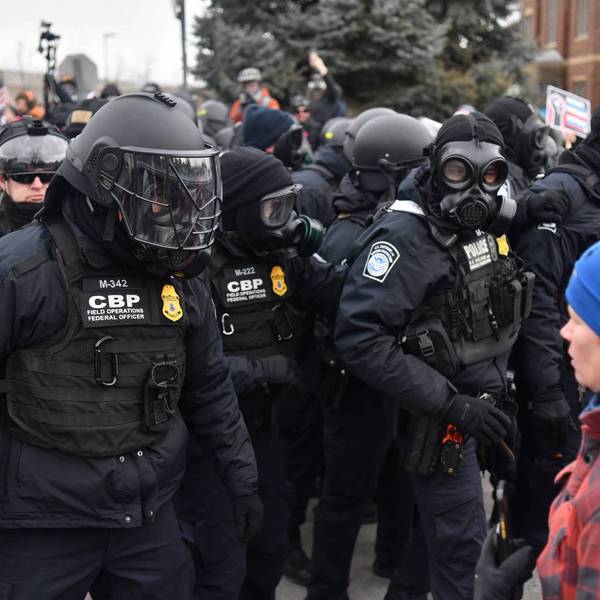George Orwell is best known for his novels Animal Farm and 1984. Both were written toward the end of a life cut short by tuberculosis. But they came after a long period of reflection, activism, and engagement, through what one writer has called the "dark valley" of the 1920s and 30s and the death and destruction of the Second World War. 1984, we are told, is now at the top of the charts at Amazon.
Orwell's insights into politics, propaganda, and the uses and abuses of power have never seemed so apt as they are today. He would have had a field day parsing the speeches and performances of the last few days. Were the possible consequences not so serious, one could enjoy a good laugh. But the ugly face of European populism after the First World War did too much irreparable damage for anyone to just walk away from the conceits and exaggerations that dot the landscape of presidential utterances.
The underlying premise of Trump's rhetoric is that he alone understands the interests of The People, and that The People are a single unit to which he has a unique pipeline. As The Leader, he alone knows how to communicate with The People. For example, The People don't want to see his tax returns. Only The Elites want to see them. A government which (allegedly for the first time in decades) has been returned to The People will actually be run by a cabinet dominated by millionaire businessmen. He sees nothing ironic or even ridiculous in that, because the only humour he understands is sarcasm and character assassination.
The dark, grim nature of his views can be found in his book Crippled America, and in that extraordinarily dark riff in his inaugural address where he described the "carnage" that had come to America, and which single-handedly he would bring to an end. The threats to The People become the threats to The Nation, which leads to the Mexican wall and the anti-Muslim policies, as well as the appeal to protectionism.
The first press conference of his new official spokesman, Sean Spicer, presented an outline of the administration's attitude to dissent or differences of opinion. Like Humphrey Bogart in The Caine Mutiny wondering who stole his strawberries, Trump and Spicer both wondered aloud who stole the crowds who had come to his inauguration. And promised to "hold accountable" those who would fail to share Trump's views about life, truth and beauty. They expect the media to support the president in his role as Unifier of The People. Transgressors will be punished.
Another spokesman for the administration, Kellyanne Conway, said Spicer was only presenting "alternative facts," giving rise to a new phrase, "alt-facts," to match the "alt-right" catchword. The art of propaganda, Orwell taught the world, is not just to lie, but to repeat it over and over again, so that it will enter the lexicon as arguably true. And, as he put it so aptly, there are times when simply telling the truth becomes a revolutionary act.
The central experience in Orwell's life was his experience in the Spanish Civil War. He learned that the propaganda and lies of the Stalinists could only be countered by the bitter tonic of reality. All courageous people could do in the face of the totalitarian lie was to tell the truth.
But it's also a reality that the U.S. government leads the largest economy in the world. It is the one with which we do the most trade. Since the end of the Second World War Canada has been committed to building a world based on the rule of law, not just because we're good guys, but because a rules-based trading system works for us better than one dictated solely by power.
It's clear from his speech that Trump's vision is a world system dominated by America's self-interest, and that every other president before him has completely failed to protect American jobs and values. He attacks companies that do business in other countries. He thinks trade and investment are zero-sum games.
It is fascinating to see how many in the business and political world are ready to placate these arguments, little understanding that they are untrue, and ultimately will be harmful to the interests of American workers and citizens. Protectionism will breed more protectionism. Self interest alone is not enough. The pursuit of the public interest requires us to look beyond our own little platoon. It took the world from 1914 to 1945 to learn some of these lessons, and it is potentially disastrous to forget them.
Canada has to do what it can to weather this storm, but it should be under no illusions. We shouldn't worry so much if Theresa May is the first in line to make the journey to Washington. We should be more self-confident in our values and the wisdom we can bring to the table. We need to be working with other countries to see how to bring more perspective to these discussions. And remember that the first things the bully smells are fear and uncertainty.



